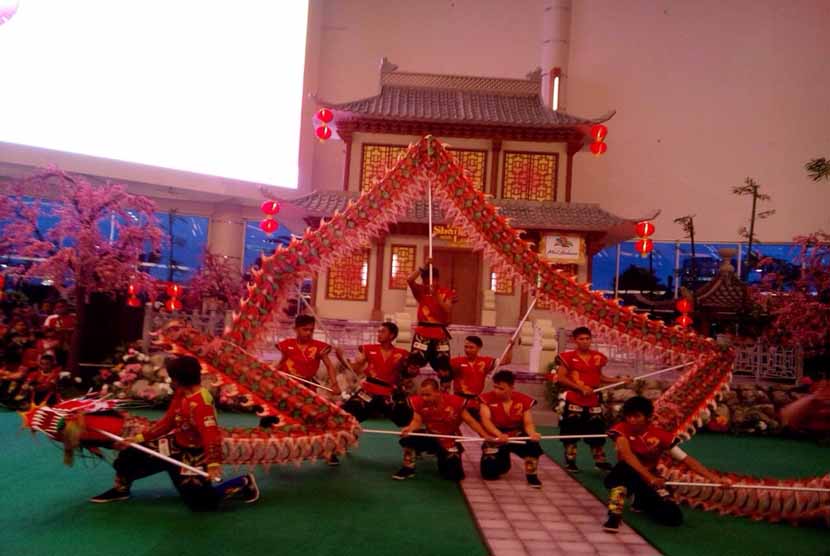REPUBLIKA.CO.ID, JAKARTA -- Chinese Lunar New Year, or Imlek, holds both spiritual and social significance, according to the Chairman of the South Sulawesi Buddhist umbrella association, Walubi Yonggris Lao.
"For Chinese in Makassar, Imlek is a special occasion as it holds spiritual as well as social significance," Yonggris Laos said here Thursday.
On Imlek, which falls on Feb. 19 this year, Chinese share happiness not only among their relatives but also with indigenous communities, he stated.
"For this Imlek, we have organized 10 events involving local communities and authorities," he remarked.
The activities include Imlek Go Green, Fun and Friendship, Futsal Cup, Imlek Prayers, Imlek Loving Visits, Chinese cultural show, a dialog on nationalism, and an international Barongsai festival in Makassar.
The South Sulawesi Association of Chinese Muslims organized an Imlek prayer event at Cheng Ho mosque.
The ninth Barongsai festival will be organized on March 20-22, 2015, at GTC Tanjung Bunga Mall. Domestic as well as international artists will participate in the event.
In Pangkalpinang, Bangka Belitung (Babel) Province, thousands of Chinese people thronged Kwan Tie Miaw Temple to celebrate Imlek.
"Chinese devotees flocked to Kwan Tie Miaw temple between 5 a.m. and 9:30 a.m. local time," Kwan Tie Miaw temple staff member A Hong said in Pangkalpinang Thursday. Kwan Tie Miaw temple was built in 1797.
According to A Hong, rituals and ceremonies in the temple were held peacefully and smoothly. "We offered hundreds of thousands of incenses to Gods and Goddesses," he remarked.
After the prayers, a barongsai show was held to entertain worshipers and local indigenous people.
Since 2002, Chinese New Year has been marked as a national day on the Indonesian calendar; so, several government offices, schools, universities, and companies remain closed during the celebrations.
The population of Chinese in Indonesia is believed to be around 10 million.


